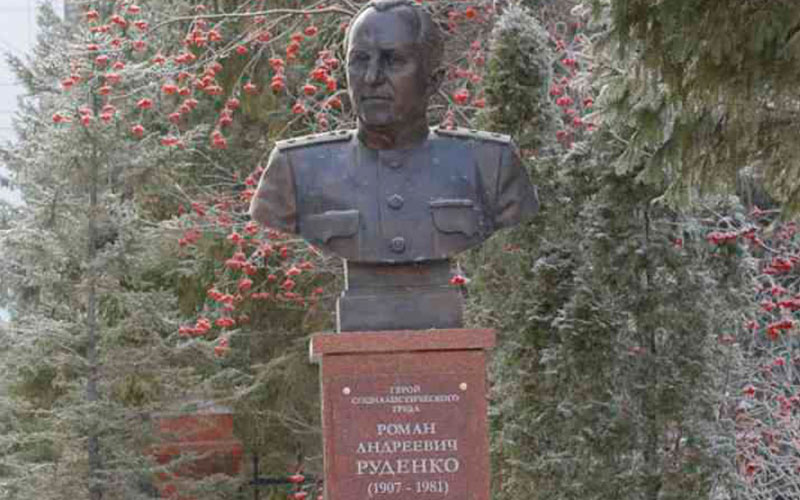[ad_1]

A bust of the USSR Prosecutor General Roman Rudenko was erected in Novosibirsk. About it reported on the website of the prosecutor’s office of the Novosibirsk region. The opening of the bust was attended by the mayor of Novosibirsk Anatoly Lokot and the governor of the region Andrey Travnikov.
“The architectural and artistic composition will become a worthy decoration of the city and will allow perpetuating the memory of an outstanding worker of the prosecutor’s office, who made a significant contribution to the preservation of law and order in the state,” the message says.
During the mass repressions, Rudenko was a member of the “special troika” of the NKVD, which sentenced people to death.
In December last year, the artistic council of the mayor’s office opposed the installation of a monument to Rudenko in the city. Council members voted against the initiative, pointing out “insufficient material to make an informed decision.” So, the architect Tatiana Ivanenko called the historical information about Rudenko, compiled by the prosecutor’s office, “surprisingly short.” Ivanenko clarified that it did not say, in particular, that in 1937–38 Rudenko was a member of a special troika of the NKVD, and in the 70s he prepared documents for the Politburo of the CPSU Central Committee on the persecution of dissidents.
“I was struck by a short but capacious speech by a deputy of the Council of Deputies of Novosibirsk, Bondarenko Sergey Valentinovich. He called the repression measures that were carried out with the aim of “protecting the purity of the nation.” What is this anyway? Ivanenko is interested.
Roman Rudenko was a member of the NKVD troika in the Donetsk region of the Ukrainian SSR, his name appears in the order of the NKVD of July 30, 1937. This document launched mass repressions against “former kulaks, criminals and other anti-Soviet elements.” In the order signed by Rudenko, specific figures were given: to shoot 82,700 people, to send another 193,400 people to the camps. At the same time, there is no complete information about how many death sentences were endorsed by Rudenko.
[ad_2]
Source link



